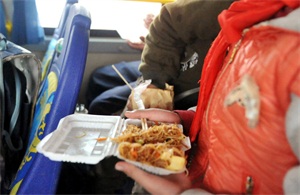Transparency requirement on soil pollution a big step forward
(China Daily) Updated: 2016-06-03 08:51The state council, China's Cabinet, issued a regulation on preventing and cleaning up soil pollution on Tuesday, which not only sets clear standards, but also supports the public's right to know and supervise implementation efforts. Beijing News comments:
The new regulation mentions "transparency" 10 times. It requires local governments to routinely publish the soil conditions within their areas of administration, requests third-party institutions to publish their assessments of soil conditions and asks key industrial enterprises to make public the pollutants they produce.
For long, a lack of transparency has curbed efforts to fight soil pollution. For example, when lawyers applied for the national soil pollution data, they were told it is a "State secret"; and when environmental protection volunteers applied to provincial-level environmental protection departments for disclosure of the information, they met difficulties.
The new regulation offers firm legal support to people who care about the environment in which we live. That's a giant step forward because only with transparency can the public truly put pressure on the environmental protection departments to do their jobs.
However, it is too early to celebrate because the new regulation might be hard to implement. The new regulation is a guiding document and it needs detailed requirements for information disclosure. For example, the records of polluting plants should be made public, but what should the records include?
Besides, local authorities might create obstacles. We expect them to set up a database, to which the public can gain easy access, but they might find excuses such as technological problems or a lack of data.
It is time to accelerate more detailed legislation and make clear what information about soil pollution should be made public, as well as what standards the database should meet. Only with more detailed articles can the new regulation be effectively implemented.

I’ve lived in China for quite a considerable time including my graduate school years, travelled and worked in a few cities and still choose my destination taking into consideration the density of smog or PM2.5 particulate matter in the region.











